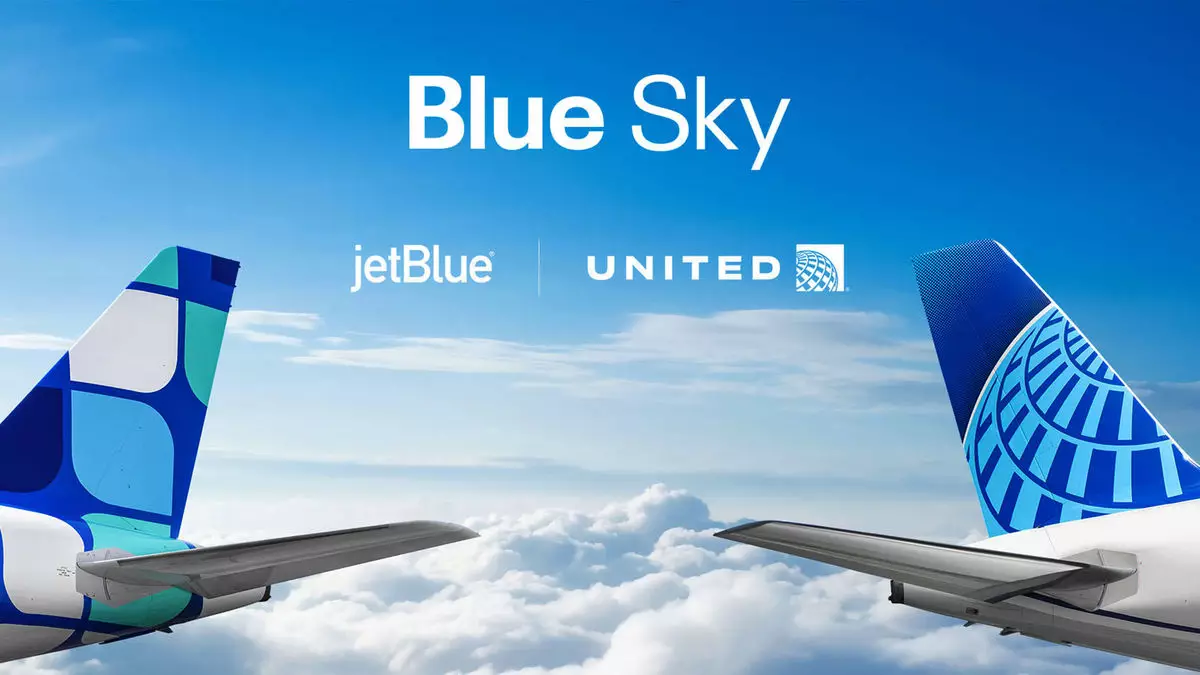In an ambitious move set to reshape the landscape of airline travel in the Northeastern United States, United Airlines and JetBlue have forged a partnership that promises to enhance the air travel experience for their loyal customers. Announced on May 29, this collaboration, aptly named “Blue Sky,” aims to provide reciprocal benefits that are as attractive as they are strategic. By allowing members of United’s MileagePlus and JetBlue’s TrueBlue programs to accrue and redeem loyalty points across both airlines, travelers can expect an expanded flight network and greater options for collecting benefits. While this alliance seems beneficial on the surface, its broader implications for competition in a lucrative market merit careful scrutiny.
Strategic Maneuvers at JFK: The Game of Slots
A significant aspect of this partnership involves the trading of crucial arrival and departure slots at John F. Kennedy International Airport (JFK). JetBlue, aiming to strengthen its operations at Newark, will relinquish some slots to United, facilitating the latter’s long-awaited re-entry into JFK by 2027. This marks a significant shift, as United has been absent from this key airport since 2015. The expected seven daily roundtrips from JFK may not only solidify United’s dominance in the New York metro area but also potentially undermine competition.
Gary Leff, an airline analyst who provides insights through his blog “View From the Wing,” reflects that this move positions United to leverage its considerable size, making it even less vulnerable to competition. JetBlue’s decision to forgo its previous partnership with American Airlines (referred to as the Northeast Alliance) underlines a shift away from collective competitiveness toward a more individually strategic approach, potentially diminishing choices for consumers in the long run.
Loyalty’s Double-Edged Sword
The partnership’s potential to boost loyalty program benefits raises a critical point about consumer welfare. While United and JetBlue members stand to gain through expanded redemption opportunities—inclusive of access to United’s vast international destinations—this could come at a steep price. Leff argues that the arrangement favors United much more than JetBlue. He sees the deal as a victory primarily for United, potentially relegating JetBlue into a subordinate competitive stance.
Skeptics worry that this partnership could encourage a trend of reduced competitive dynamics among airlines in the Northeast, especially where American Airlines is already struggling. Furthermore, ongoing consolidation in the industry means that fewer carriers control more routes, making it difficult for consumers to benefit fully from the supposed efficiencies of such alliances.
Potential Gains for JetBlue in a Limited Role
Despite concerns about its competitive implications, some analysts believe JetBlue stands to gain significantly from the partnership through access to United’s expansive global route network. With over 200 destinations available that are not currently served by JetBlue, the airline may tap into new markets, enhancing the value of the TrueBlue loyalty program. For members holding Mosaic status, the promise of retaining loyalty benefits across United’s expansive network broadens their horizons, making travel more appealing.
Conversely, MileagePlus members gain benefits in JetBlue’s rich East Coast-Caribbean connections, expanding their travel options even further. While the bargain might seem one-sided in favor of United, analysts like Brett Snyder maintain that the new alliance will provide JetBlue with important marketing advantages and customer benefits that could ultimately benefit travelers.
Competition and Market Dynamics in the Northeast
Examining broader market ramifications, the partnership is poised to alter the competitive landscape, but the impacts will vary widely within different segments of the industry. Analysts predict that while JetBlue may gain a stronger foothold to challenge a struggling American Airlines, Delta might remain resistant due to its already significant presence at JFK and LaGuardia.
This evolving dynamic in airline competitiveness foreshadows an era where fewer players in the market wield greater consolidation of power. The strategic alliance between United and JetBlue, while framed as a boon for customers, subtly points to a future where choices may diminish even as the allure of loyalty programs grows.
While the United and JetBlue partnership appears advantageous for their frequent flyers, the implications for overall airline competition in the Northeast raise several red flags. As airlines continue to navigate this delicate balance between cooperation and competition, consumers must question whether their interests are being served or sidelined in the increasingly complex landscape of air travel.


Leave a Reply